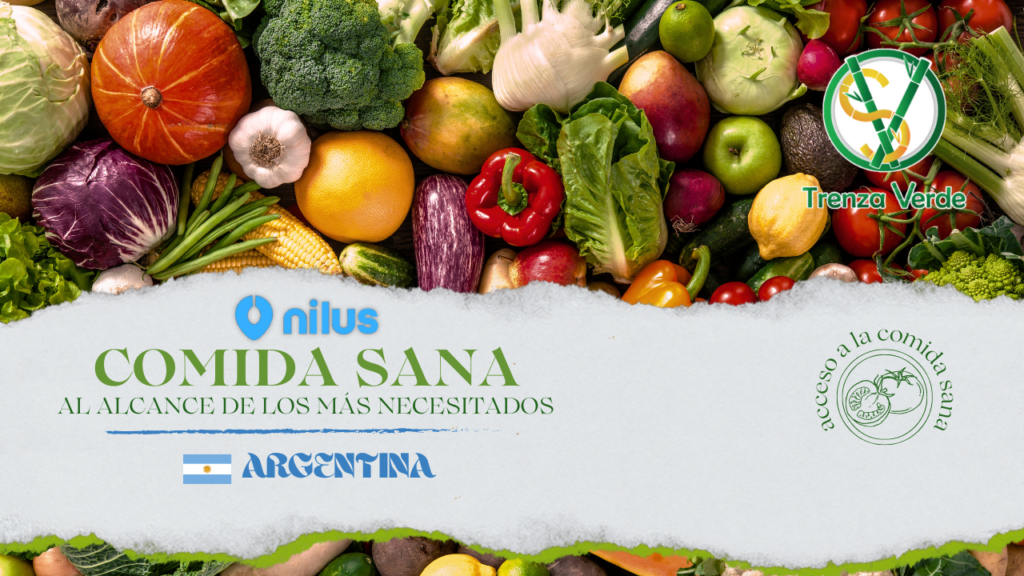There is still so much to be done on our planet, but thanks to the implementation of businesses based on the principles of the Circular Economy, we’ve discovered new and innovative ways to address modern challenges—by applying technology and creativity. In this week’s article, we highlight how a company called NILUS (Argentina) is tackling food insecurity, a growing global issue that threatens future generations with hunger and malnutrition.
Nilus: A solution that brings nutritious, affordable food within reach of those who need it most!
Before we begin, here are a couple of important facts to consider: Over 1.3 billion tons of food are discarded every year. To put that into perspective, that’s equivalent to the entire land area of Mexico being planted with crops—only for them to go to waste.
And another striking figure to reflect on: more than 258 million people across 58 countries either lack access to food or live in constant uncertainty about their next meal. This is what’s commonly known as food insecurity. A serious challenge, wouldn’t you agree?
The good news is that there are creative entrepreneurs and companies working tirelessly to find solutions to this global threat that affects us all as a species.
NILUS, named after the Nile River (a nod to the first human settlements that practiced sedentary agriculture), is one of those companies that truly restores our faith in humanity! Imagine a tech-driven solution that connects you directly with local farmers to access a fresh pantry—helping you eat healthy at affordable prices. And not just that—it’s built on the core mission of preventing food waste and loss at all costs.
How does it work? It’s a simple but effective solution: Nilus collects the freshest produce from nearby farms and fields and distributes it through community buying networks in areas facing severe food shortages. The goal is to deliver food that provides real nutritional value to residents—especially the youngest ones. This way, everyone can have access to food, eat well and healthy, without spending a lot of money.
It’s estimated that low-income communities—those essentially trapped in poverty—end up paying between 25% and 30% more for their food and that of their families. A complete injustice and irony, considering these are people who often lack even the most basic resources to live with dignity.
Thanks to Nilus’ business model, food can cost up to 75% less than at a traditional supermarket. This significant reduction is made possible by optimizing the entire food distribution chain, cutting out the extra costs typically added by middlemen in traditional systems. Now that’s good news! And on top of that, when you buy through Nilus, you’re supporting local farmers and helping to reduce food waste.
Nilus is currently available in Mexico City, Buenos Aires, and Lima, but it’s very likely that this model will continue to expand across Latin America—a region deeply affected by social and economic inequality.
What do you think? Would you like to learn more about Nilus or how you can get involved in this initiative? Leave us a comment!

